Visiting with My Father – Do You Print Your Photos?
by Amy Medina
Saint Patricks Day makes me think of my dad. Though auto parts and cars were his trade, he was into photography, and enjoyed taking photos. He unfortunately passed away in 2001, prior to my passion for photography taking full bloom, and I often wonder how he would view my love for it, especially in the digital realm.
Of course, like many kids who grew up in the 70’s, I have faux leather-bound photo albums of the family photos, showing their age and faded, filled with the silly shots and the out-of-focus posed family shots, where my dad handed his camera to someone and our heads are partially cut off. There are photos taken by him, by my mom I’m sure, and by other people with cameras who gave us their doubles. Many of us have these albums laying around or tucked into a cabinet… and I’ve only really come to appreciate their existence as I’ve gotten older.
And then, a couple of years ago, my brother discovered a box of my father’s slides in the bottom of a closet. I knew of them, but years ago; I remember curiously looking through them as child and teenager, squinting through the plastic magnifying loop and holding them up to a window. But I had forgotten about them over the years, in the back of my mind assuming they got lost when my father sold the house I grew up in, or even thrown away just to save space. When my brother found them again after decades of not seeing them, and years after my father had passed, it was like digging up buried treasure.
We sat on my living room floor looking through the mysterious photos that focus in mostly on my father’s time in the service, stationed in Okinawa during the Vietnam War. There are also early family photos, from before I was born and into my toddler years. What pops up are faces of family members long gone, and faces of dear family friends we’ve since rekindled relationships with, and photos of beaches and towns all the way around the world, during a very different era. There are only a few, but there are even photos of my dad himself, where his fellow soldiers and friends seemingly grabbed his camera a stole a shot, like the one of of him sleeping.
All of this gets me thinking: what happens to all of our photos that are sitting on hard drives decades from now? How will our memories be relived by our children and grandchildren? Are we to leave instructions behind on how to access our achives, and is that experience the same as finding an old box of photos in the attic? If a hard drive is disconnected and stored away, reducing our stories to zeros and ones, will our children and grandchildren be able to just plug them in and enjoy them if discovered years later?
There is a tangibility to printing out photos, or leaving behind slides and negatives. It’s something we are losing as a society. I don’t pretend to not enjoy technology… quite the contrary, I’m about as geeky as they come, appreciating all that computers and electronics have to offer, and I take full advantage of the advances. I also think several generations from now, a lot of this will have been worked out somehow by our great-grandchildren and great-great-grandchildren; the dilemma of common formats and how to access our deceased relatives’ digital footprint. Or at least I have great hopes it will be all worked out. But what happens in the meantime?
At the end of every year now I print all my photos. I know that may seem excessive and I suppose many of you take a whole lot more photos than I do. There may be a different process you have to take in self-editing first, though be careful not to edit out that blurry photo of grandma because years later you will appreciate it as one of the shots that exist of her. The point is, I want to leave behind boxes of actual photos for my loved-ones to discover and savor… instantly. And I want you to do the same. We should leave behind something tangible that takes no effort to enjoy.
Of course, I’m not talking here about the artistic prints or the gallery canvas, or even the occasional photo book. I do all those myself, but it’s not the same thing. My coffee table books are always there to be browsed through, with the best chosen photos inside them. The prints I hang can always be seen. The people who buys prints, they enjoy them as they do in the room of their choice. What I am talking about is the undiscovered treasure that the rest of your photos will be to your family members and the people who love you: The ones you didn’t share. The ones you shared online that got a zillion “likes” but were forgotten about 3 days later. The shots you thought were mistakes and the ones you took of other family members that they don’t even remember you taking. The photos of places you loved and sights you enjoyed and that picture you took of your feet in the Pacific Ocean for the first time.
At 12¢ per print (more or less) it’s a no-brainer to just take stock at the end of each year and have some 4×6’s made to throw in a box and put in the back of closet or drawer, the same way our parents and grandparents did back in the day after having rolls of film developed. Think of it as your analogue backup. And one that your children and grandchildren may one day appreciate.–

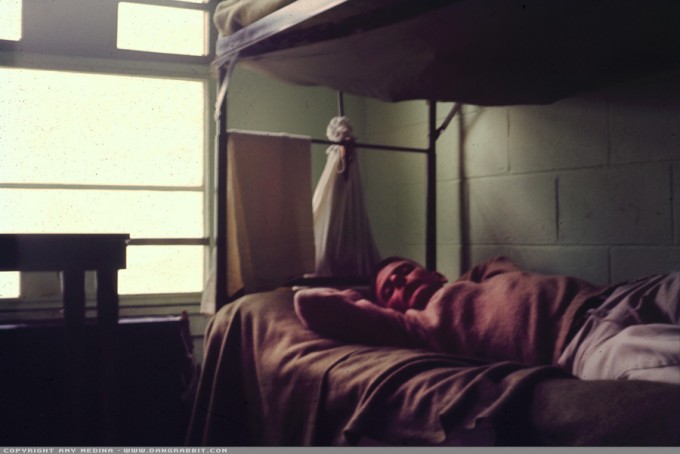
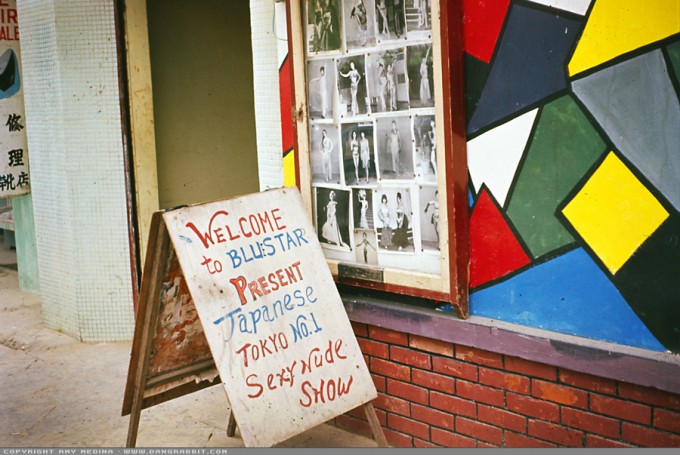
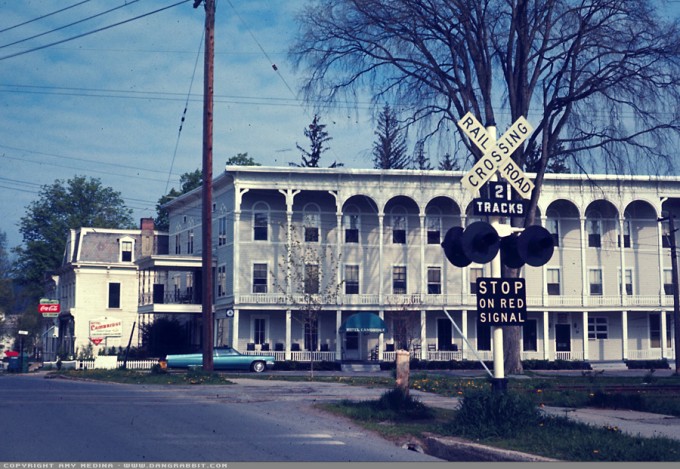
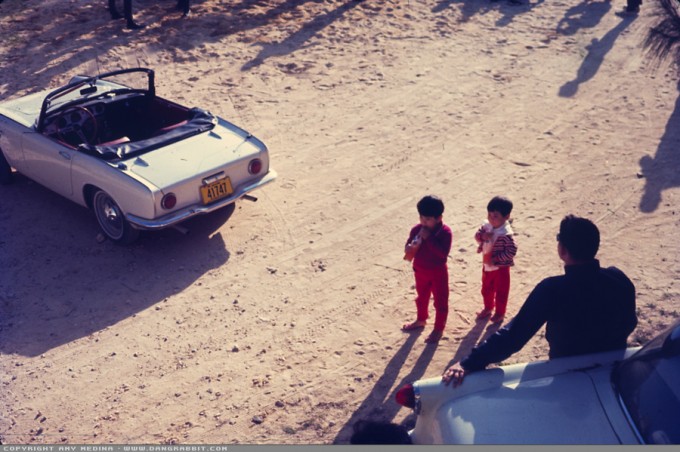
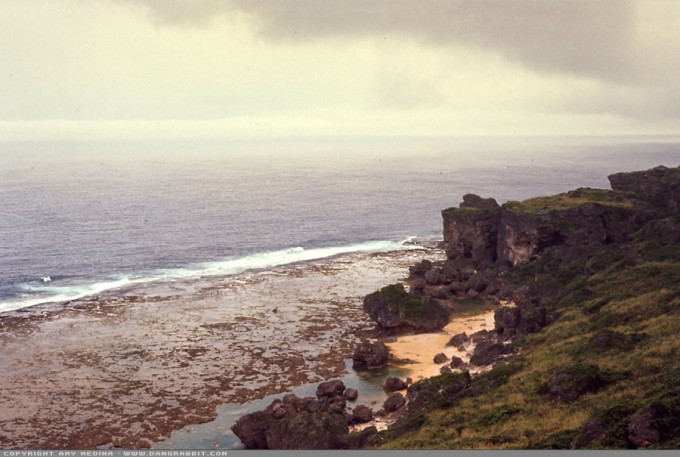
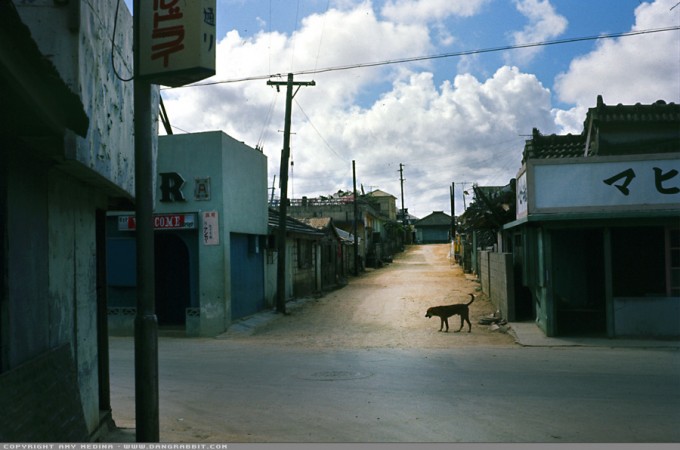
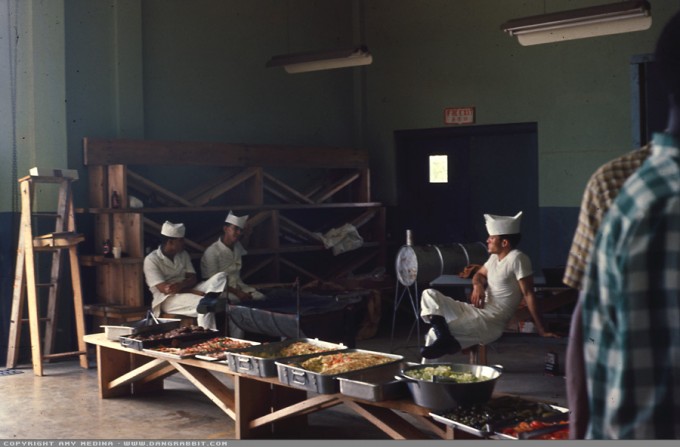
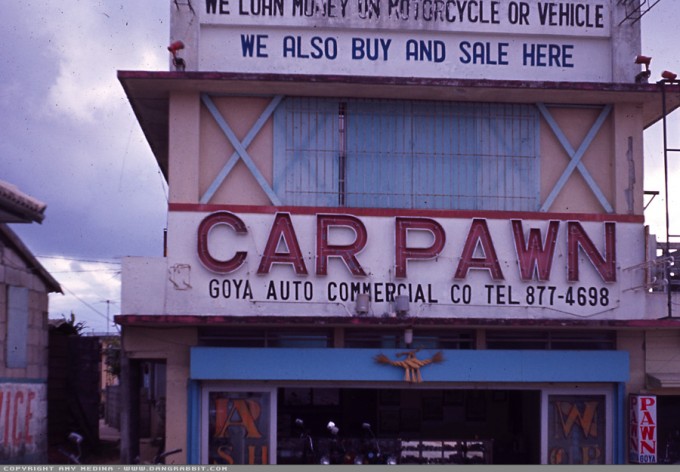
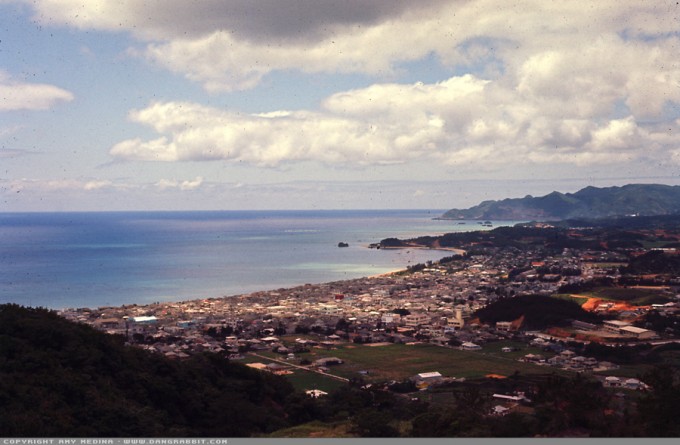
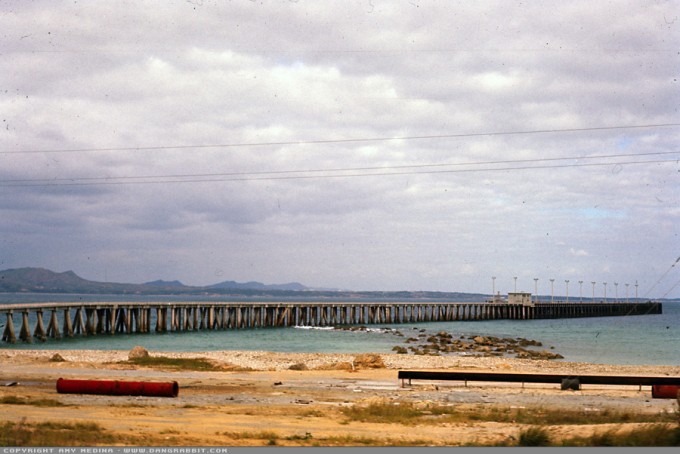
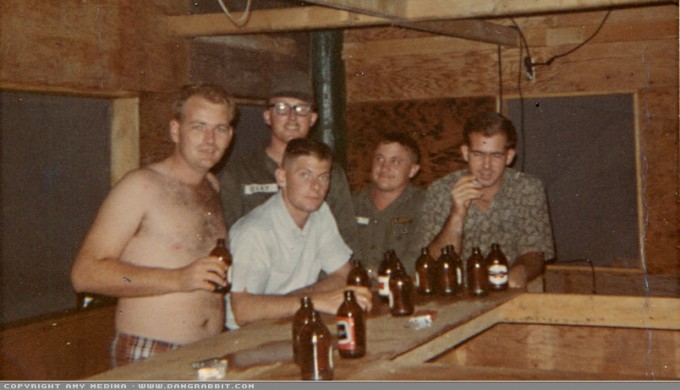


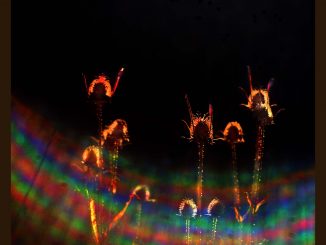
THIS kind of articles should be seen around more. I don’t want to offend anyone, but this site is quite a bit gear centric nowadays.
I am 18 and this July had a conversation with a new acquittance. He said “no one prints anymore, too expensive, just put it on facebook and be done”
I found a cheap photofinisher that for 7$ prints 75 4×6″ prints… Lovely to hold your own photographs on your hand, and contemplate them. Infact, I’ve sent some to a lab to get enlarged to a modest “big size” (8×12″) and eventually frame them.
Thorougly agree with the views expressed. No matter how, digital media need close maintenance and if we forget an HDD for 30 years in a shoebox, who knows how to retrieve the data… See floppy disks and weird tape formats…
Printing is relatively cheap and low maintenance way to keep the photographs and an end of process to our hobby.
Lovely read Amy
Jimmy shared your post with me, it is beautiful!! We had such fun viewing the slides with you your dad was laughing right along with us Ican still hear his laughter, that is all we did when we were young.
+1
And those images are great, too.
Amy, What a beautiful tribute to FAMILIES. I’m going through my photos tomorrow and printing some if not most. I loved finding old photo boxes hen we caned out my parents house. It was a special gift at a difficult time and my brothers and I bonded over trying to figure out w
ho was who.
A wonderful and moving article. Thanks for sharing Amy.
Amy your words are very moving.
On your site your digital image processing is rather similar to your Dad’s analogues … Lovely surprise.
Wonderful moving article Amy, and a reminder of what can be so magical about simple family photos. I was glancing over Steve’s site over breakfast this morning and wound up putting my tea down to read your story twice!
Funny, I’ve just recently relocated from the UK to Canada for work and in doing so went through my parents’ loft to pack some old things. Likewise I stumbled across many shoe-boxes full of photos (only from my younger years with friends and family).
You’re spot on in that many of us rarely take the time to print anything other than our favourite photos in this day and age, and that it’s well worthwhile archiving your personal ones on a yearly basis, those that are never otherwise likely to leave our phones or memory cards.
In fact you’ve inspired me to do just that! Always enjoy your articles, keep them coming!
James
This is a great essay about evolution, and how to deal with the consequences of evolution. The message here is very much the same as Jason Howe’s “A Film Legacy” which was featured here and on his site. It is also this same thing that has allowed all of us to get to know/experience the unique vision of Vivian Maier. I feel that if Vivan had been shooting digital we would not know her.
I had a similar experience where I discovered a few hundred medium format negatives with images of my father’s childhood on them. It took me a while to scan them, but it was so fun, and everyone that I shared them with could not stop talking, laughing, and crying about them. The bonus was seeing photos of my dad in the Army and of my Uncle I never knew stationed somewhere in the South Pacific photographed with natives of what I am sure were beautiful tropical islands.
For those of us who have lived through the film era (or the and of it in my case) this is a constant internal battle. I used to be a darkroom jockey and I love the process of making images that way. The smell of the chemicals, the “wow factor” when the film canister is opened, and of course watching an image appear on paper under a red light to this day is amazing – for practical reasons this process for me is now done with a scanner and monitor. I struggle constantly with this film vs digital decision, not because I think one is better, but because I fear that one will be lost/forgotten because it leaves no indelible record, just a delicate digital signal. When I reach for a camera to take on a trip, or a walk, or wherever I always second guess my decision once before I walk away from my closet.
Thank you for this thoughtful article Amy. Steve’s site is entertaining, but like many photography sites these days it is all about gear and has little to do with the art, the history, and the emotional side of photography. You obviously do consider these issues in your thoughts on photography and that is refreshing to me. Cheers.
Loved some of these photos, especially the lone dog in the street, and the cooks sitting round, great depth to the colours, and composition is beautiful!
I completely understand how you feel, I’m in Mauritius at the moment visiting family ( wife’s ) and have just printed off the best selection of 2 weeks worth of shooting with my DSLR, from local beaches, picnicing with family, hiring an old bus, climing up forests, witnessing Maha Shivaratree, as far away from the 5 star hotel holiday everyone expects when you tell them where youre going…! wasn’t cheap, but I’ve ended up distributing them to family, of various ages, some will end up in frames, or on the fridge door, but they’ll be there,out on display a constant reminder of family, friends, little ones growing up quickly, ready to put a smile on their faces, not languishing in a folder, tucked away… Forgotten…. Thats why, when I get back home, I’ll be making a book of the trip on blurb, and sending a few of these out to family, I don’t se the point of having such a wonderful tool as the camera, which captures some great moments, if the images are just left gathering digital dust…..
Riveting, to coin a phrase. Proves that every picture tells a story. What is better than leafing through a stack or an album of old photographs, and feeling the memories coming back. Love the faded colours too.
Thanks for sharing!
I just wanted to thank you all for your lovely comments. I’m happy to share my father’s photography with you all, and glad my message resonated with so many of you. And thank you for sharing your thoughts with me as well!
I shudder to think that 100 years from now, entire generations of photographs will be lost because our hard drives didn’t stand the test of time, our grandchildren didn’t think enough to look in all its folders, or all those Facebook photos suddenly vanish because Mark Zuckerberg files for bankruptcy. 🙂
Amy, I didn’t mean to move the attention over to film vs. digital (that’s another old-rusty can of worms!), I was only intrigued that some comments were seeming to take that direction and moving away from the point. I completely agree it doesn’t matter what they were taken with or if it goes in a drawer or a hard drive.
Thomas! I remember those days in the 90’s… the company I worked for would do a annual convention and it was always up to get to get all the slide presentations done. It didn’t even require powerpoint since we’d send out for real slides anyway (we didn’t burn them ourselves, we sent the artwork out to a slide-house). Thanks for that memory… It’s funny how caught between the digital and analogue world we have been the last two decades…
Of course, my article isn’t really about film vs. digital – I love both, but neither is any good if no one ever sees the photos. When they sit on a hard drive until it fails years from now, what good have they served? I suggest only, that if we print them out from time to time, there is a discovery that can happen that might not otherwise be possible.
And Tad, while I hear what you’re saying completely… I am one of those people who will buy those estate-sale photos. I will look at them and wonder who the people are, and what their stories say. So even if there remains no family members to cherish them, there are people in this world who relish in the history of what the photos of others share. Maybe someday there will be old hard drives full of photos sold at road-side sales, but somehow it doesn’t feel like the same thing.
Thanks for this Amy…this is a wonderful story, and I hope it will also draw more people out there to share similar stories from their own experiences. Photography is truly a wonderful thing, and we need to remember that it’s far more than arguments about sensor size, which cameras have more features, and so on. Photography played a very important role in documenting family histories in the past. It still does, but the method of archiving and remembering is very different in the digital age. I hope that today’s generation will have something tactile within their families and friends, something more to remember and share of their history than a series of random Facebook posts on an iPhone. Admittedly, I’m writing this response online, and never would have seen these without the internet, but I don’t think that the internet should ever replace a good print hanging on a wall (even if it’s made digitally), or an album on a coffee table, or a well-thumbed book on a shelf.
Same here – I started collecting and editing old family picture, then started shooting film again, got my analog GAS period (some of these amazing cameras simply have no affordable digital equivalent yet!) and now I’m starting to feel the itch to print on photographic paper… 🙂
Thanks for sharing Amy, first quality food for thought!
Thanks Amy.
+1
Amy, Steve,
Thank-you for the article. After three years of scanning over 200 roles, there are still many to go. Next step – is to combine multiple pictures of important events and create photo books, with texts, names of people in the pictures, and explanations. Books are great because you can make as many copies as you need – we do one for each of our kids, and their kids. Lots of work, but the grandkids love those books. We consider it yet another investment of our time to help future generations of our family. In this ephemeral digital world, negatives and books can bring a sense of stability and roots to our families. This is an investment of time and love for our families.
Wow Amy ….you’ve really left me thinking about the legacy I will leave my daughter and nephews…..
Wonderful…..Thank you for doing this…..
What a great article. This article is almost exactly my story and what brought me seriously into photography about five years ago. My grandfather had given me a few thousand slides from the 50s-70s that I remember so well watching in the form of slide shows we enjoyed during family gatherings.
Gathering up and scanning all those slides brought back so many memories. It suddenly struck me that if I had never done that, most of my family would have never seen those slides ever again. Over the years, I have put on “computer slide shows” during family gatherings to show off all those old photos and it was so rewarding to see the everyone so excited to see them all. Just to hear all the old stories made it all worth it.
Needless to say, I have my camera with me all the time when family is involved. It is so important to capture those family moments for the next generation to enjoy. Until recently, my work of course was all digital, but I am now bringing back film into my flow. Yes, I could just print all my digital work. I already backup all my family photos online, but there is just something about film that to me is more than just the look. I love the whole process of working with film. All my family photos are now taken with my Nikon F5 and using a variety of film (B&W negative, Color negative & slide). My Nikon D700 still has it’s place when I like to shoot landscapes and occasional sports (much easier with digital). The beauty of using a F5 and D700 is utilizing the same lenses.
Love this article and hope to see a resurgence in film. Film will never come back as strong as it was, but its nice to think we can still keep it afloat.
Tad, you reminded me of when I worked at a photo lab. Behind the counter I had boxes tagged by year of unclaimed film and prints. It was my pastime to look through them. I did it for curiosity, but it would almost always end up becoming depressing, seeing beautiful works, family memories, and sometimes even professional wedding photos (when wedding photographers still shot on slide).
I find it interesting that people still shoot film for the sole purpose of keeping family records, since digital is only as bad as you make it. I think it’s all about planning and organization, and just like you have prints from film, you could get your digital images printed too. Don’t get me wrong, I still love film and the physicality of it, but I never think twice in shooting digital for family events.
+10… with a caveat. Many years ago, long before garage sales were in vogue, I used to hit said sales in search of the big find. Inevitably, I would quite often chance upon a box full of those wonderful family photos. Usually a buck would buy the whole box. Forgotten. Unwanted. Lost to time. It really hit me hard, pondering the transcendency and fragility of memories, particularly in our modern times. It dawned upon me that eventually, irregardless of the strength and size of our family heritage, that those memories, in what myriad of forms, would fade from conscious import. I guess all of life is so fleeting. A print is simply a memory with a longer shelf life than a digital folder. In the end, the wealth of said memories belongs to those who make them.
Thank you for a heartfelt and important essay Amy.
My answer: I still shoot film.
Digital is convenient but not for memories.
All the best/ Mattias
I’ve seen a few photos in frames around the house that I know where taken on digital cameras that I just can’t find on a hard drive nor DVD. Thanks for reminding us about the importance of having an analogue backup.
There are several online printers that makes this process very easy. In fact, too easy to just let our digital files evaporate into the ether.
When I was a intern and resident there in NYC we made PowerPoint (Aldus Persuasion) presentations on computer. This was in the ’90s and we did not have digital projectors. Our department used a device called a slide burner, that would be connected to a computer and expose slide film. We would use the old fashioned carousel for the presentations.
Seems a bit ironic since that device would give a pretty good long term solution for our digital images.
What a trip down Memory Lane for you! My dad never was much into photography but I do have a Yashica Electro35 GS he bought while in England in the early 1970’s. It was passed on to me after his death in pristine condition. He had kept it in a full case which got all beat up but it works perfectly and I shoot Tri-X in it. It provides a connection to my dad that I did not think that I had….
Amy,
That is a lovely story, thank you for sharing it. I’m glad that you are making others think about this too, since to me it’s something incredibly important for which we seldom think about.
I recently wrote about the same subject, which a friend of mine affectionately calls the “digital shoebox” at http://www.vitormunhoz.com/the-digital-shoe-box/ if you have some time check it out.
Cheers,
Vitor
I read the article this morning and I am still thinking about it in the evening. It really helped put things into perspective for me. I’ve realized that I have been taking a bunch of pictures and have not printed out a single one of them because I didn’t think they were good enough to print. What I am coming to realize is that the picture does not have to be perfect or amazing to be printed, just meaningful. Even if it is only meaningful to me.
A blurry, low res pic of family with not the best lighting and so on may seem insignificant and like a “bad” picture, but future generations of my family may treasure it more then any other picture that I have ever taken. This article made me reconsider my entire philosphy regarding printing photos and photography in general. Every family gathering, every small moment, even accidental snaps may become gold to my future children or grandchildren. Thank you for the inspiration and for the wake up call.
What a lovely and thought provoking post Amy. It worries me that this generation will have the least social documentation to leave behind of any for the last 100 years. Could much of it be lost or will whole industries be born from the business of computer archeology? My guess probably a bit of both. I feel that we should all learn to print and print more! Thanks for your post Amy
I completely agree that pictures need to be printed. So many people point to computers and phones to show you where their pictures are stored and it’s just not the same. Even leaving out the fact that technology can fail us and those pictures can be lost, it’s still different. I believe it’s necessary to have copies you can hold in your hands.
Sitting down either by yourself or with someone and going through photo albums is one of the joys in life. Pressing your heads together to look at tiny digital copies on a phone is not the same thing. I have volumes of photo albums that I store in file cabinets and I keep the negatives/discs in a separate place. Pulling one out to go through is always a joy.
Amy, I really enjoyed this article. It’s well-written and I think your point is very important. I wish your dad was here and could go through the pix with you.
I couldn’t agree with you more. I to have pondered these questions a lot over the past few years. There is just something special about old photographs. My answer for myself was to start shooting film, I started shooting 35mm and then Medium Format. I still shoot digital but film is what I love to shoot. I also have been trying to document my family in film specifically because it just seems like people don’t do that anymore. Either way, great post.
I make a yearly top 40 photo book in Aperture.
The biggest problem with the digital age is that few young people print photos anymore. Just ask them, hey where are your photos and they hold up their phone or tell you they’re on the computer. Not good. A lot of memories are being lost now and will never be recovered unfortunately.
I have been scanning all of my family’s old photos and negatives for more than a year.
I have stuff dating from the late 1800’s (from a view camera with glass negatives).
I copy all my photos into 3 separate disk drives for redundancy, and share them online with my family.
However, with an all digital system, there is still something missing.
The physicality of photos, being able to look at them without a computer (even an iPad is not the same).
My solution to this problem is photo books. You get the physical sense of the photo without the bother of having boxes of prints. People love looking at them over and over again, unlike individual prints or online photos. You can also get quite creative with the presentation of the photo books.
After the occasion hard disk mishaps I’ve now got a networked storage with 4 mirrored drives which I hope will protect my images. However this is a nice reminder to print them, I already got a few great ideas from this article so thank you very much!
A great reminder as I haven’t printed for months. I had been regularly printing A4 on archival paper, jusy a favorite image once every few weeks. Something to share, and something to leave. Also worth doing is adding a few words in pencil on the back, just saying who, what, where, when, why.
Blurb books are okay, but a box of prints with your scrawl on the back are unique, personal, and a real treasure.
Less is more. The 20 tiny b/w images my father left me are as imortant to me as any of the thousands of digital images I have taken.
I simply cannot agree more with the narration in this thread. My feelings are identical to your own.
My father in law passed away a couple of years ago. Just like your dad he left behind albums full of prints from his wartime years. He was the first British serviceman into Hiroshima, you can imagine what the prints depict. Without these prints,memories, for good or bad, would be lost forever. We still have his wartime camera, amazing to think what it has seen and saved.
Guess we owe it to future generations to record today what might be forgotten tomorrow.
Best article here sine a while 🙂
IMO, hanging your framed prints is the best cure against GAS.
You’re always reminded how awesome that 2 year old camera really is.
Your dad took some great photos.
Your writing is deep and full of true feelings of that portion of your life. Compound the writings with those nostalgic pictures evoke a feeling of the timelessness era. Thanks for this beautiful posting. Make my day,
Great post! I had the same experience… after my father passed away five years ago I found six grocery bags of slides he had taken from 1952-1972. About 3000 total. It took me two years sorting part-time to narrow down to about 300 that I hope one day to scan. It was a very emotional journey and at times I had to step back for several months because it was just too much to look at photos of our family years before my folks divorced. However, it is also fun to look at photos of distant places, such as downtown Green River Wyoming in 1956 as our family migrated from New York to Los Angeles. Thanks for sharing. I had no idea I wasn’t the only person hunched over long lost family slides.
What a lovely story and perhaps tribute. I too have no idea how to deal with your dilemma but it’s far better than not finding the analogue images. I’ve original negs and deckled edged prints from my family’s distant past and negs and transparencies of everything from Bobby Kennedy, Jim Morrison, Tim Leary and countless other ancients and have no idea when and even if I’ll ever digitize them. No time. Or so the excuse goes.
Be well and thanks for your essay.
More than this printing photos is a great way to share with family members who don’t use computers. My Grandma was sad that nobody was sharing pictures with her anymore until she finally communicated it. Then we realized it was because we had been sharing online using social media but hadn’t thought about how people like her were getting left out. Now we print out photos to share all of the time.